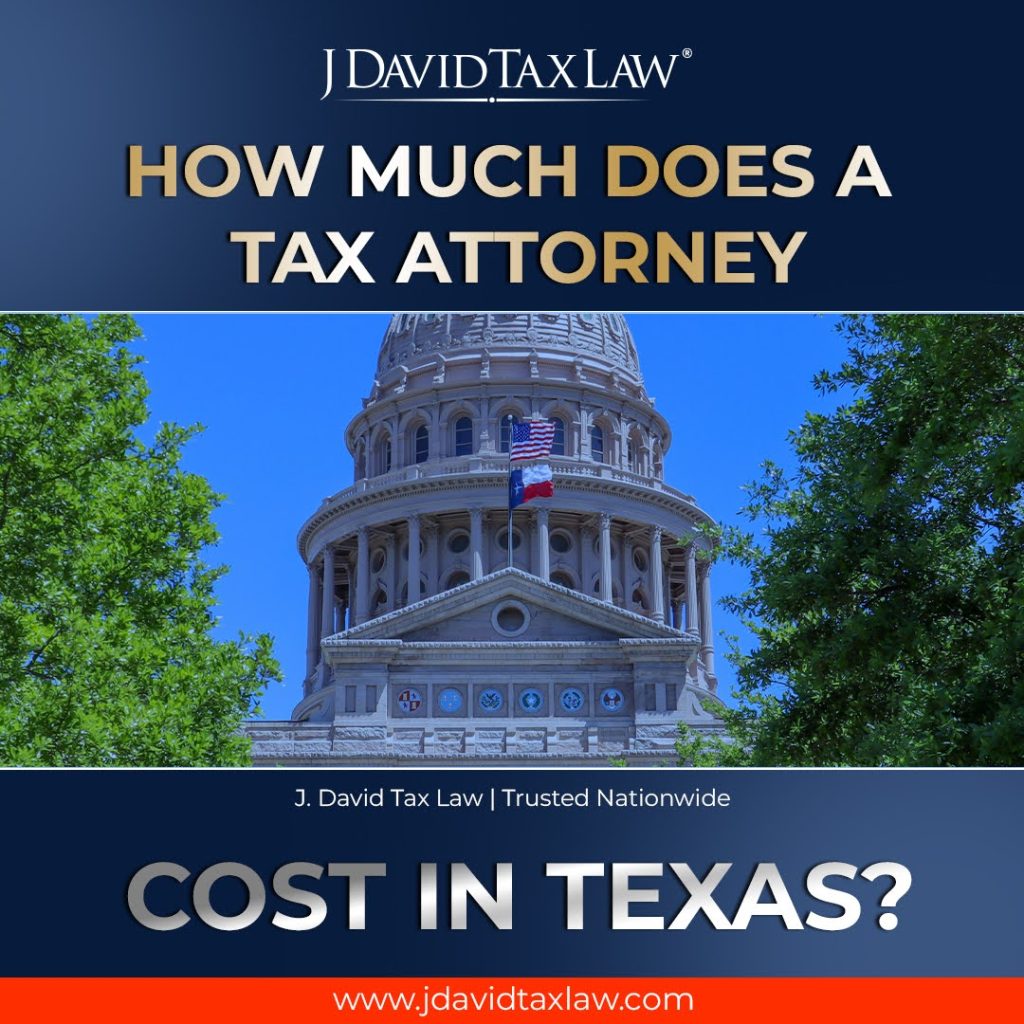The fear of jail time for unpaid taxes looms large in the minds of many taxpayers. It is becoming more prominent during the busiest days of the tax season. Common misconceptions persist about the consequences of tax debt, often exaggerated by extreme cases involving high-profile individuals.
However, the reality of tax law and its enforcement can be a complicated concept for some individuals. This blog aims to provide a clear, factual explanation of what can legally happen if you fail to pay your taxes. Through this discussion, J. David Tax Law can clarify the legal realities and implications of tax non-payment.
It is also crucial to ensure that you are well-informed about the potential consequences and the measures you can take to avoid them. By understanding these details, taxpayers can stay in compliance with their obligations with confidence and avoid unnecessary fear and anxiety.
What is a Tax Debt?
Tax debt refers to any unpaid taxes due to federal or state tax authorities after the filing deadlines. This can include any type of tax from income to sales taxes that have not been fully paid by the required date. It accrues penalties and interest, increasing over time if the outstanding balance is not addressed.
While both federal and state governments can impose taxes, the way they manage and collect tax debts can vary significantly:
Federal tax debts are managed by the Internal Revenue Service (IRS). It typically involves income taxes, payroll taxes, and other federal taxes levied at a national level.
State tax debts involve state income taxes, sales taxes, property taxes, and other taxes specific to an individual state. Each state has its own tax authority and collection methods. These can differ widely in terms of enforcement intensity and the procedures followed.
Legal Framework for Tax Debt Collection
When it comes to managing and collecting tax debts, the Internal Revenue Service (IRS) adheres to a strict and structured process. This ensures that all taxpayers are treated fairly and the government can efficiently recover unpaid balance, penalties, and interest.
This section outlines the key steps the IRS follows, emphasizing the procedural and legal aspects of tax debt collection.
Notice of Debt: The IRS first sends a notice detailing the amount owed, including taxes, penalties, and interest.
Payment Request: If the debt is not settled, further notices may be sent. The IRS offers options for payment plans or settlements.
Collection Actions: If the debt remains unpaid, the IRS may take more direct collection actions.
Additionally, in order to enforce tax debt collection, the IRS employs several legal tools:
Tax Liens: A legal claim against a taxpayer’s property when they fail to pay a tax debt, securing the government’s interest in the property.
Tax Levies: A levy takes the property to satisfy the tax debt. This can include garnishing wages, taking money from bank accounts, or seizing and selling property owned by the taxpayer.
These tools are meant to compel payment and are usually employed as a last resort after providing the taxpayer with multiple opportunities to resolve their debt. Understanding these processes is crucial for anyone dealing with tax debt. It will help them know their responsibilities and avoid compounding their financial issues.
Can Non-Payment of Tax Debt Lead to Imprisonment?
The fear of jail time for unpaid taxes is a powerful motivator for many taxpayers. The reality is that non-payment of tax debt, in itself, typically does not lead directly to imprisonment.
However, there are certain circumstances under which non-payment can escalate into a criminal offense, potentially resulting in jail time. Imprisonment for tax-related issues generally stems from actions that constitute tax evasion—an intentional act of deceiving the tax authorities to reduce one’s tax liability.
Here are a few scenarios where non-payment might lead to imprisonment:
Falsifying Information: Deliberately reporting false income or deductions on tax returns to reduce the tax owed.
Concealment of Assets: Hiding assets specifically to avoid tax obligations.
Not Filing Returns: Willfully failing to file tax returns despite owing taxes.
These actions suggest a deliberate intent to defraud the government. It is a key component in most tax evasion cases that lead to criminal charges.
Tax Evasion vs. Tax Avoidance
Taxpayers need to understand the distinction between tax evasion and tax avoidance. The penalties for tax evasion can include hefty fines and imprisonment, whereas tax avoidance is a lawful way to minimize taxes.
Tax Evasion: This is the illegal practice of not paying taxes by not reporting income, reporting expenses not legally allowed, or not paying taxes owed. Tax evasion amounts to using illegal means to escape taxation, and it is a federal crime under the IRS code.
Tax Avoidance: Unlike evasion, tax avoidance is the legal use of tax laws to reduce one’s tax burden. It involves taking advantage of a range of tax-saving measures within the law, like deductions, credits, and benefits to minimize tax liability.
When it comes to non-payment of tax debts, those who simply cannot afford to pay will not automatically face criminal charges. They need to communicate and cooperate with the IRS to arrange payment plans or settle disputes due to late payments. The IRS typically reserves criminal prosecution for those who intentionally avoid paying taxes through deceitful or illegal means.
Conclusion
The provisions of tax laws can be overwhelming, particularly when dealing with the possibility of liens, levies, or even criminal charges for tax evasion. Proactively managing your tax obligations is essential to prevent these serious outcomes.
If you’re facing tax challenges or simply want to ensure you’re on the right track with your taxes, it’s wise to seek personalized advice from a tax professional. Tax experts from J. David Tax Law can offer guidance tailored to your specific situation and help you avoid penalties and interests. They can also negotiate with the IRS and set up a monthly payment or installment agreement to end your financial hardship.
Book your free initial consultation to learn more about the remedies available for you! Contact J. David Tax Law at (888) 342-9436 today! Their knowledge of tax law and IRS procedures ensures that you are taking all the right steps to resolve your tax debts legally and efficiently.
Frequently Asked Questions
What should taxpayers do if they are facing tax challenges?
How does the IRS handle federal tax debts compared to state tax debts?
What are the potential penalties for tax evasion?
What are some examples of tax avoidance measures within the law?
Some examples of tax avoidance measures within the law include:
– Deductions
– Tax Credits
– Retirement Savings Contributions
– Capital Gains and Losses
– Business Tax Incentives




















